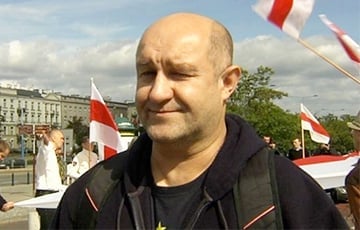‘This Is The Money That Keeps The War Going’
3- 9.10.2024, 20:36
- 28,306

How to inflict maximum economic damage on Putin?
Saudi Arabia threatens to crash oil prices to $50 per barrel, as OPEC+ countries do not comply with oil production quotas. Experts warn that such a strategy will deal a blow to the Russian economy, which is largely dependent on oil revenues.
How realistic is this scenario today? Charter97.org talked to Ukrainian politician, former Verkhovna Rada deputy Boryslav Bereza about this and more:
— I would very much like this not to be a storm in a teacup. Moreover, I would very much like these words not to be in vain. But something tells me that this is just indignation, which should draw attention to the position of the Saudis and help them achieve a reduction not only in quotas, but in actual oil production and its sale on the market. They want to earn money not on volumes, but on margins, that's why they make such statements.
Are they ready to go all the way and lower the price? I have big doubts here, because this is not that easy to do. In addition, we also understand that there are other players on the market. Of course, we would like the Saudis to implement their intentions, because this would immediately radically change the situation with financing Russia, whose main money in the budget comes from the sale of oil and gas.
It is on this money that the war of the Russian Federation with Ukraine is based, it is with this money that the mercenaries who fight against us are financed. It is with this money that microchips, chips and equipment are bought in the West, from which “Shaheds” and missiles are then made. All this is bought through front companies. And if you knock this chair out from under Putin's ass, he would not only fall, but even break his head, which would be great in this situation.
— The same scenario was described in the article by former US Secretary of State Pompeo, and Trump also spoke about it. What other opportunities are there to put economic pressure on Russia to deprive it of money for the war?
— There are still sanctions, there is still pressure on partners to refuse to buy oil and gas from Russia. But we see that today even EU members — Slovakia and Hungary — are buying Russian gas and oil.
In fact, Hungary pays Russia 5 billion dollars a year, receiving cheap oil in return. And then these 5 billion are transformed into drones and missiles that fly into Ukraine. These are, let's say, theoretical stories that are not implemented in practice. Here you need to, like in that joke: either put on your panties or take off your cross.
You can't just make statements and then silently watch what happens. This way, no changes will occur — if you say halva a hundred times, it won't taste any sweeter in your mouth.
So here, threats do not work without action. No matter how tough the sanctions are, the non-binding nature of their implementation and the actual ignoring, including by EU members, will not motivate all other Russian clients to refuse Russian gas and oil.
— There is another sore point for Putin's regime — mobilization. Western media wrote that the head of the Kremlin is trying with all his might to avoid it. What scares the Russian dictator in this scenario?
— There are many points here, starting with the fact that a crisis is currently growing in Russia, due to which everyone is observing problems with labor reserves, namely, a shortage of workers. In the same military-industrial complex, almost 90 thousand vacancies are not filled, despite the fact that salaries are on average four times higher than in Russia in the regular sector.
The reason is very simple — there are no people, simply no people. The war washed away the workers who used to work in industry and create products. Russia has already encountered this problem.
The next story — mobilization will still show that the war has begun. But the Russians don't want war, they are interested in watching the war from the sidelines, and not taking an active part in it. The Kremlin is also afraid that there will be another outflow, as happened in 2022, when the Russian government decided to try to implement mobilization. Then more than a million active, talented, smart people left Russia, who effectively cut off the Russian Federation from future prospects. When the smart ones leave, of course, the dumb ones remain. It is easier to manage the dumb, but it is impossible to achieve more with the dumb.











